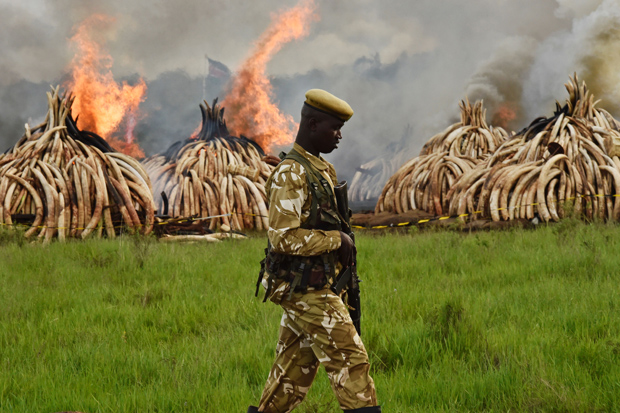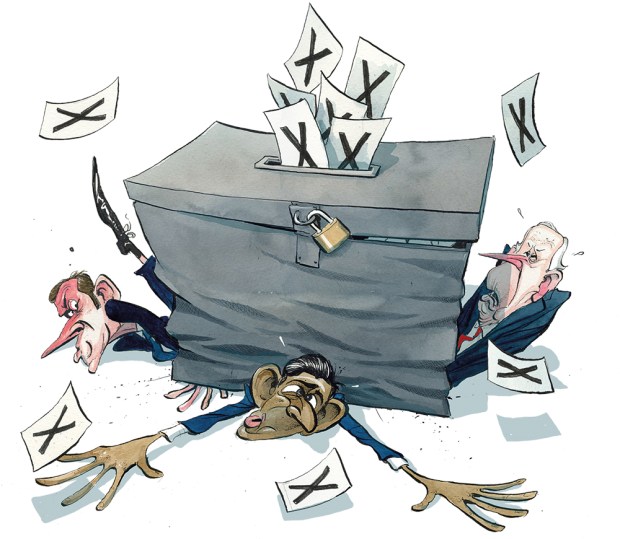To mark World Environment Day this Sunday, Angola will celebrate its zero-tolerance approach to the illegal wildlife trade — the third biggest illegal trade after drugs and arms. Angolans are seeking to rebuild their shattered elephant population in the face of the relentless trade in ivory. But the debate is marked by sharply opposing views, which tend to be centred on such spectacular stunts as the burning of government stockpiles of elephant tusks.
Already a subscriber? Log in
Subscribe for just $2 a week
Try a month of The Spectator Australia absolutely free and without commitment. Not only that but – if you choose to continue – you’ll pay just $2 a week for your first year.
- Unlimited access to spectator.com.au and app
- The weekly edition on the Spectator Australia app
- Spectator podcasts and newsletters
- Full access to spectator.co.uk
Or
Unlock this article
You might disagree with half of it, but you’ll enjoy reading all of it. Try your first month for free, then just $2 a week for the remainder of your first year.












